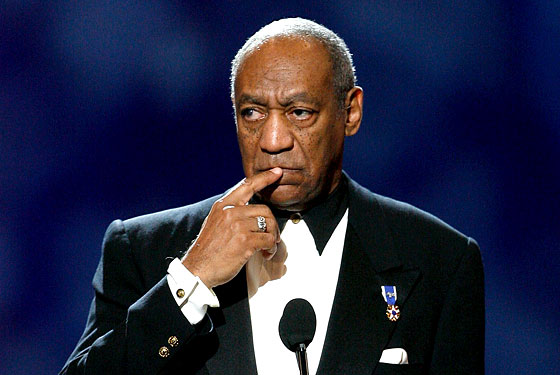The more things change, the more they stay the same?

Tapiwa Nyandoro Correspondent
The slow one now
Will later be fast
As the present now
Will later be past
The order is rapidly fadin’
For the times they are a-changin’
You might think the words from Bob Dylan’s song, “The Times they are A-changin’” were the Zanu-PF 6th People’s Congress anthem? But are the times really changing?An ocean away in Washington, far from the madding crowd, the words inspired the editorial team at Finance & Development (F&D) in preparing a special issue (September 24, 2014) on the global economy’s past and future, to celebrate the magazine’s 50th, and the Bretton Wood Twins’ 70th, anniversaries. In one of the articles in the interesting edition, the editors asked five Nobel Laureates to “share their thoughts on which single frontier issue promises to shape the economic landscape in the years ahead”.
Nursing their post congress blues, the incoming members of the party’s Politburo, may find the Laureates’ opinions useful in mapping national economic strategy going forward, if not also indeed, in mending their to date wayward ways.
The party’s First Secretary at its most recent congress noted the need “to move urgently to establish a policy formulation, development and evaluation mechanism, which provides focused intellectual input in assisting (the party’s) First Secretary and President, congress,conference and Central Committee and the Politburo in asserting the supremacy of the party (presumably on ideology and not on Law and Order) over Government”.
He accepted the need to establish an ideological and economic think tank at the party’s headquarters, and the need for the Politburo to move away from tactical operational issues to a strategic level of policy formulation and monitoring. For the umpteenth time he called for zero tolerance on the scourge of corruption. George Akerlof, who bagged the Nobel Prize for economics in 2001, sees global warming as the biggest problem facing the global economy in the next 50 years. NewsDay recently reported that 2014 is likely to be the hottest on record. This would mean 14 of the 15 warmest years since a century ago, will have been since the turn of the century.
Zimbabwe’s Meteorological Services Department seems to link global warming with increasingly reduced summer rainfall figures. Over the past three decades empirical evidence abounds. It is therefore time for political parties and Government to take note of this and incorporate (new) acreage under irrigation as a measurable parameter for monitoring Government performance. A target of 10 000 hectares, at an investment of around US$60 million, needs to be added to the national acreage under drip irrigation annually for two to three decades. This would justify the rhetoric given to Zim-Asset, which increasingly is sounding hollow. Other environmental management techniques, such as extensive re-forestation programmes, would be needed as a long-term strategy to reverse or at least global warming and to encourage eco-tourism.
Getting the 100GW US$100 billion Grand Inga Dam Hydro Power project off the ground could, and should be a global effort to reduce emissions from thermal plants and to curb de-forestation. The cheap and reliable hydro power will have the positive spin off of driving economic growth, stimulating trade and creating jobs in the whole of Sub-Saharan Africa.
Paul Krugman, a winner of a 2008 Nobel Prize thinks “increasing demand is the unresolved crisis” of the future. This is in particular relative to rich countries where production capacity has surpassed demand, if not need, due to reduced fertility and increased productivity owing to the digital and robotics era. The need in Africa, however, is significantly greater than demand, offering the world a great opportunity. The excess trained manpower, retired or otherwise, and the huge amount of idle capital from mutual funds could easily find a home in Africa as new markets, that is demand, are opened up.
To the new incoming Zanu-PF Politburo, enhancing the rule of law, improving Government effectiveness and the regulatory framework, not to mention combating corruption, become paramount.
Demand in Zimbabwe can be improved by as much as 10-fold in the next 30-50 years, provided the above mentioned governance indices are spruced up.
Secular stagnation refers to “persistent tendency for a national economy (or a group of them) not only to grow slowly but more particularly to find it difficult or impossible to use fully its productive potential”.
Robert Solow of MIT, who won the Nobel Prize of economics in 1987, believes secular stagnation is the rich world’s problem going forward. The reason Solow believes it is a threat to developed countries is because “both population and total factor productivity will grow more slowly (in the next decades) than in the halcyon past”.
Why then should Zimbabwe be seemingly cursed with a rich world’s disease?
Africa, including Zimbabwe, provides the world with a pool of unmet needs, and hence a reservoir of latent demand, that could serve the world from secular stagnation. But the political elite, as said above, should reduce country and continental risk by attending to governance issues to allow global capital, and its abundant human resources, to work. Inequality, due to the American model of democratic capitalism, which involved deregulation, liberalisation and privatisation, and aped by the so-called Washington consensus (ESAP), is Joseph Stiglitz, and probably President Barack Obama’s choice of a major challenge in the next 50 years. The global financial crisis and the realisation that before it US median income had stagnated for 25 years, has led the 2001 laureate to question: “What form of market economy works best?”The professor believes it is not democratic capitalism per se, that is to blame for US inequality, as other countries such as Brazil (China?) have in fact reduced inequality. He believes, however, the inequality in the USA, in income and wealth, is a result of policies and politics such as:
Rampant monopolies and oligopolies;
Government-conferred benefits on corporations and the rich. In Zimbabwe, it is more likely to be benefits to A2 farmers, senior ruling party cadres and other cronies);
Bailouts for banks. The Zimbabwe Asset Management Company (ZAMCO) being a case in point?
Tax laws that allow the richest to avoid (and evade?) taxation. Such laws in Zimbabwe makes the A2 farmer avoid land tax and State-owned enterprises immune to tax regulations.
The above listed cocktail of toxic policies and politics is made more poisonous in “those “countries (such as Zimbabwe?) where so much of the inequality arises from rent seeking (corruption) – the top appropriating a larger and larger share of the nation’s pie to themselves – and from a lack of equality of opportunity, implying those at the bottom never have a chance to live up to their potential”.
This, the professor noted is “false capitalism” and the result is “flawed democracy” that “enables economic inequality (arising from state resource/institution capture in Zimbabwe) to be easily translated into political inequality, in a vicious nexus where an increase in one form of inequality increases that of the other”. The professor concludes by appealing to let “markets work as markets are supposed to work”, (even in Zimbabwe’s land reform programme?) – with strong competition driving innovation that raises living standards, not the kind of innovation centred on how to appropriate a larger share of the nation’s income and circumvent the regulations (and their framework) designed to make the economy function well.
He warned that the “economy has to be a servant of society and not the other way round”, the test being job and wealth creating capabilities of any programme; a test Zim-Asset is finding hard to cope with.
Last but by no means least, Michael Spence felt increasing “Inclusiveness” is the greatest challenge now facing global economies. “Inclusiveness”, he writes, “will require changes in mind-sets, policy responses and institutions – international and domestic.”
Let the old adage: “The more things change, the more they stay the same”, be proved wrong.”










Comments